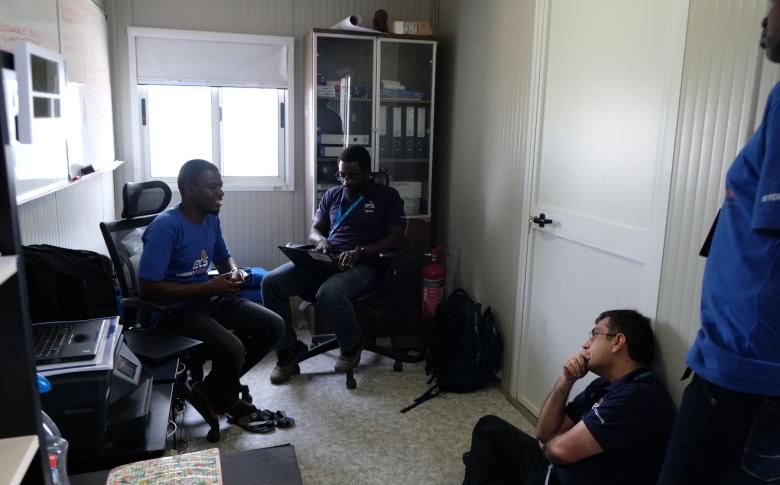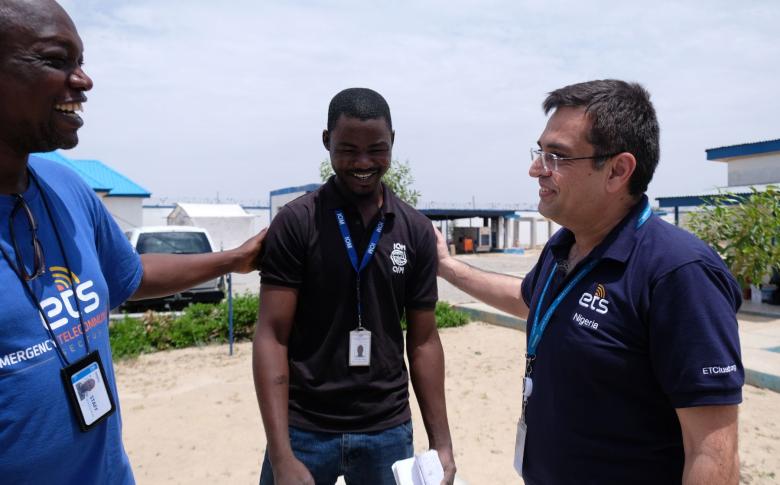Serving humanitarians in North-East Nigeria

Jalal Shah, Global ETC Coordinator, touched down in North East Nigeria recently to visit the Emergency Telecommunications Sector (ETS) team operating there. He had a look at operations and met with stakeholders to discuss future for ETS collaborations.
Beginning his journey in Maiduguri, Jalal traveled with Ekue Ayih - ETS Coordinator for Nigeria - and Information Management Officer Erika Iglesias to the humanitarian hub in Dikwa.
“The humanitarian hubs are a perfect example of how essential partnerships achieve a common goal in the field: reach more affected people in remote field locations," Jalal says. Seventy-five humanitarian organizations, including local non-governmental organizations and United Nations (UN) agencies, have been supported by the ETS in Nigeria so far in 2019. Have a look at a complete overview of ETS activities in Nigeria since January 2019.
On average, the ETS provides Internet connectivity for 40 humanitarians per day at the hub where the Sector has also established a Security Operations Centre (SOC - formerly known as Communications Centres, or COMCENs). SOCs are used to monitor the movement of humanitarians throughout the region, allowing for more robust safety controls.
“ETS Internet is the only means of communication for over 50 per cent of the humanitarian organisations in Dikwa," says Muhammad Kalli, the IOM Hub Manager in Dikwa. "I've been working in Dikwa for two years and I still remember when ETS deployed services at the hub and I called my family for the first time four months after I left Maiduguri: my mother starting crying. You feel isolated and not productive without connectivity services in this kind of context."
“Ive been in Dikwa for more than one year and ETS Internet is paramount in my daily work. To ensure accountability, we need to log all the food movements in and out of the warehouse on our online tracking system (RITA). ETS Internet allows us to do that in real time with no need to document everything manually, risking loss of documentation," says Malan Banah, a Warehouse Officer from the the Agency for Technical Cooperation and Development (ACTED).
The International Organization for Migration (IOM), the United Nations Department of Safety and Security (UNDSS), the World Food Programme (WFP), the Logistics Sector, and the United Nations Humanitarian Air Service (UNHAS) are some of the partners using ETS services in North-East Nigeria. Their feedback is paramount in the quest to fine-tune service such as security communications and Internet connectivity.
